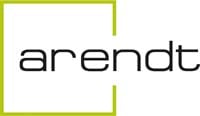News and developments
Perfection of the New Market Abuse Regime in Luxembourg
13/12/2016
Today, the Luxembourg Parliament enacted the law (the “New Market Abuse Law”) implementing Directive 2014/57/EU of the European Parliament and of the Council of 16 April 2014 on criminal sanctions for market abuse (market abuse directive), also known as the “Market Abuse Criminal Sanctions Directive” (“Directive 2014/57/EU”) and Commission Implementing Directive (EU) 2015/2392 of 17 December 2015 on Regulation (EU) No 596/2014 of the European Parliament and of the Council as regards reporting to competent authorities of actual or potential infringements of that Regulation (“Directive (EU) 2015/2392”). With the transposition of Directive 2014/57/EU and Directive (EU) 2015/2392, Luxembourg has ensured the effective implementation of the new market abuse regime deriving from Regulation (EU) No 596/2014 of the European Parliament and of the Council of 16 April 2014 on market abuse (market abuse regulation) and repealing Directive 2003/6/EC of the European Parliament and of the Council and Commission Directives 2003/124/EC, 2003/125/EC and 2004/72/EC (the “Market Abuse Regulation”) and its related implementing and delegated regulations, which had already entered into force on 3 July 2016.
Directive 2014/57/EU was the first directive to be adopted under Article 83(2) of the Lisbon Treaty and defines the market abuse infringements and the nature of the criminal sanctions that Member States will have to implement.
Concurrently with its entry into effect, the New Market Abuse Law also repeals the Law of 9 May 2006 on market abuse, as amended (the “2006 Law”).
The New Market Abuse Law follows the well-established Luxembourg practice of fully implementing the provisions of a given directive without going beyond the requirements of that directive.
Compared to the prior legislation, the main differences brought by the New Market Abuse Law are outlined hereunder.
Adaptation of sanctions to the widened scope of the Market Abuse Regulation
Rather than reforming the legislative framework set out under the 2006 Law, the New Market Abuse Law in substance extends the scope of application of the existing rules to the widened scope of application of the Market Abuse Regulation, particularly with respect to relevant trading venues (the scope of application of the Market Abuse Regulation not only focuses on regulated markets but also on multilateral trading facilities (MTFs) and other types of organised trading facilities (OTFs), which will be introduced in January 2018 by Directive 2014/65/EU of the European Parliament and of the Council of 15 May 2014 on markets in financial instruments and amending Directive 2002/92/EC and Directive 2011/61/EU ("MiFID II")), financial instruments and prohibited behaviours. Furthermore, the Market Abuse Regulation also applies to emission allowances or auction products based thereon, spot commodity contracts and related financial instruments and benchmarks.
Accordingly, the widened scope of prohibited behaviours pursuant to the Market Abuse Regulation will now also be mirrored by the catalogue of potential sanctions set out by the New Market Abuse Law.
Increased administrative and criminal sanctions
While administrative (i.e. non-criminal) sanctions will not exceed the low limit that Member States have to foresee pursuant to Directive 2014/57/EU, not only the administrative but also the criminal sanctions provided for in the New Market Abuse Law will increase significantly to ensure compliance with the rules on market abuse. Serious forms of market abuse, particularly offences committed intentionally, potentially entail criminal sanctions. Sanctions may be imposed on both natural and legal persons.
As administrative and criminal sanctions will coexist, the New Market Abuse Law continues to provide for a detailed consultation procedure between the Commission de Surveillance du Secteur Financier (the “CSSF”) on the one hand and the state prosecutor on the other hand, so as to ensure the safeguard of the principle non bis in idem.
Exercise of supervisory powers
The New Market Abuse Law extends the supervisory and investigatory powers of the administrative authorities responsible for combatting market abuse, particularly the powers of the CSSF. It is worth mentioning in this respect that the CSSF is now authorised to reach out to external experts in connection with specific questions raised during an inquiry for an infringement of the provisions of the Market Abuse Regulation.
Reporting of suspicious orders and transactions
The New Market Abuse Law implements into domestic law the rules and technical arrangements to fully implement Article 32 (Reporting of infringements) of the Market Abuse Regulation provided for in Directive (EU) 2015/2392, including the arrangements for reporting and for following up reports, and measures for the protection of persons working under a contract of employment and measures for the protection of personal data.
Amendment of the Law of 11 January 2008 on transparency requirements for issuers, as amended
Issuers for which Luxembourg is the home Member State for the purposes of Directive 2004/109/EC of the European Parliament and of the Council of 15 December 2004 on the harmonisation of transparency requirements in relation to information about issuers whose securities are admitted to trading on a regulated market and amending Directive 2001/34/EC (the so-called "Transparency Directive"), as amended, may wish to note that the New Market Abuse Law extends the definition of the expression ‘regulated information’ within the meaning of such directive by including therein the notifications which a relevant issuer (or any other person who has applied for the admission of securities to trading on a regulated market without the issuer's consent) is required to disclose for purposes of Article 19 of the Market Abuse Regulation (i.e. transactions conducted by persons discharging managerial responsibilities and persons closely associated with them).
Entry into effect
The law still needs to be published in the Luxembourg official gazette (Mémorial) before entering into force (that is 3 clear days following its publication) with the exception of the provisions relating to OTFs, emission allowances or auction products based thereon, which will enter into force on 3 January 2018.
Luxembourg Newsflash - Perfection of the New Market Abuse Regime in Luxembourg
